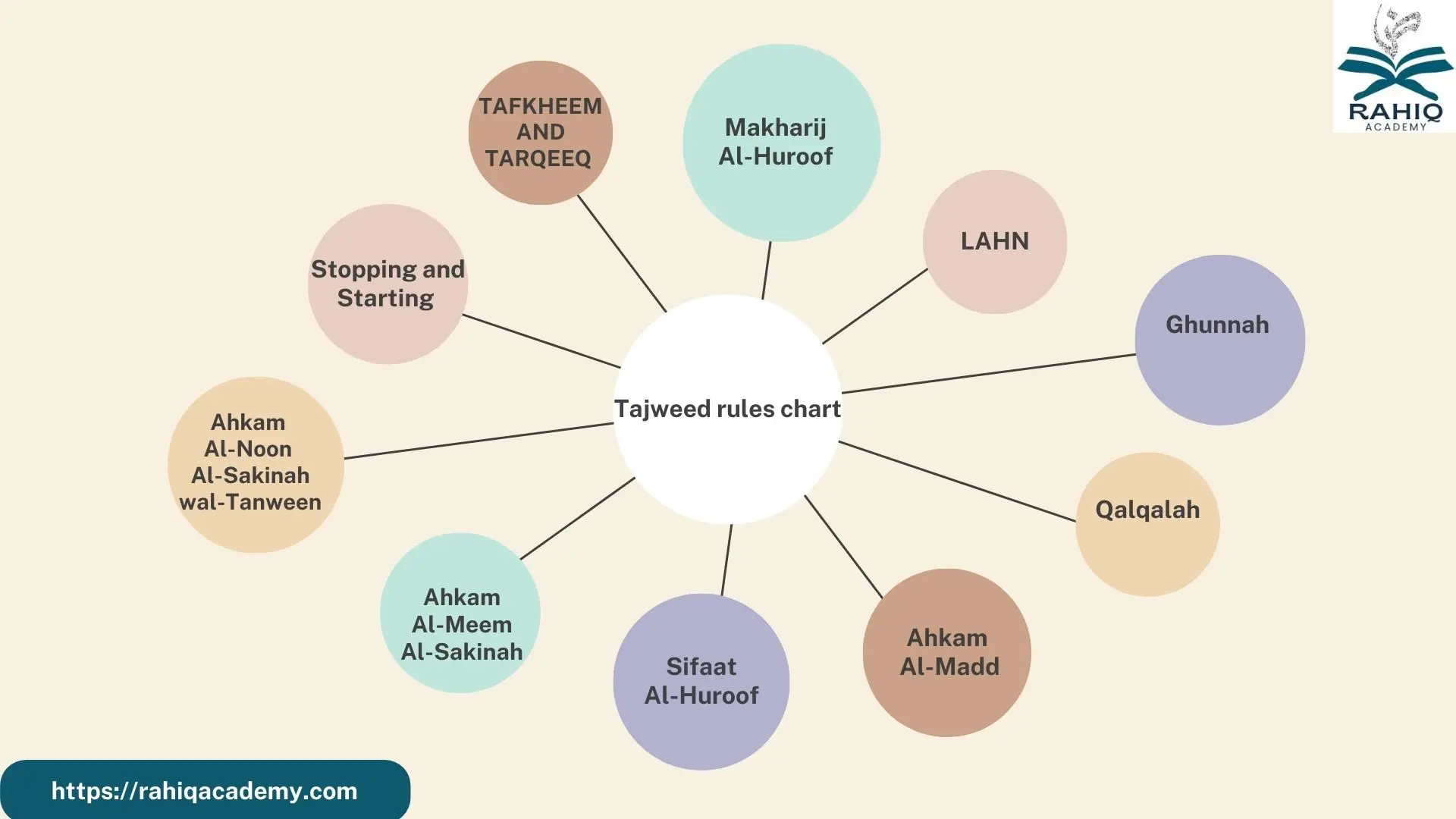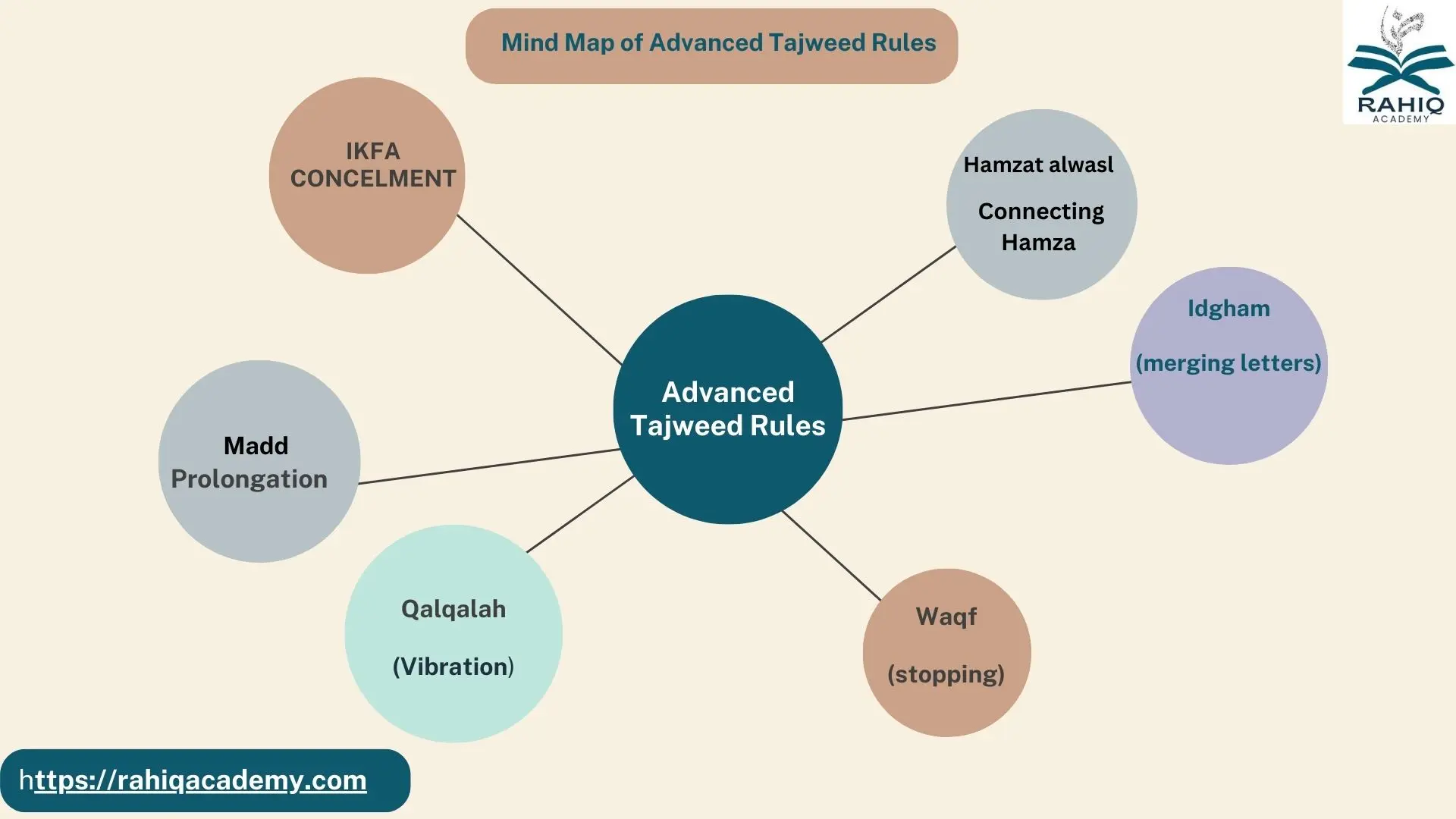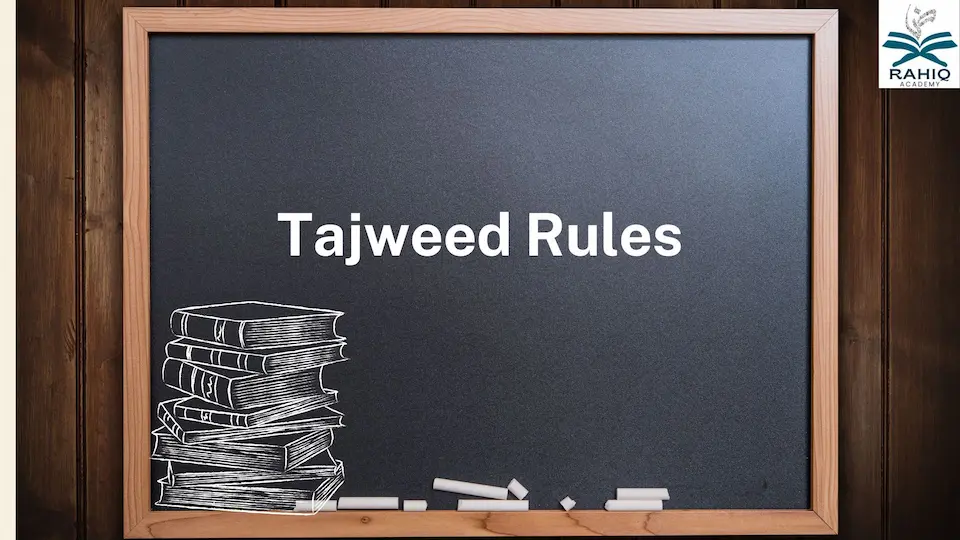Define Tajweed (تجويد) is a critical aspect of Quranic recitation, focusing on the precise articulation of Arabic letters and the rules that govern their pronunciation. Originating from the Arabic word meaning “to improve” or “to make better,” Tajweed ensures that the Quran is recited as it was revealed to the Prophet Muhammad (ﷺ). This practice preserves the Quran’s authenticity and beauty, making it an essential skill for Muslims who seek to connect deeply with the divine text. In this article, we will explore what a Tajweed Quran is, the importance of Tajweed, and delve into advanced Tajweed rules.
What is a tajweed quran?
Tajweed refers to the rules governing the correct pronunciation and recitation of the Quran. It ensures that the Quran is recited in the manner revealed to the Prophet Muhammad (ﷺ), preserving its original meaning and beauty. Tajweed includes guidelines for articulation, pronunciation, and intonation, ensuring that each word is spoken with precision and clarity.
Importance of Tajweed
Tajweed is crucial for maintaining the integrity of the Quran. Incorrect pronunciation can alter the meaning of the text, potentially leading to significant misunderstandings. For example, the Quran emphasizes proper recitation:
“وَإِنَّهُ لَتَنْزِيلُ رَبِّ الْعَالَمِينَ * نَزَلَ بِهِ الرُّوحُ الْأَمِينُ * عَلَىٰ قَلْبِكَ لِتَكُونَ مِنَ الْمُنذِرِينَ * بِلِسَانٍ عَرَبِيٍّ مُّبِينٍ”
“And indeed, it is [a revelation] of the Lord of the worlds. The Trustworthy Spirit has brought it down upon your heart, [O Muhammad] – that you may be of the warners – In a clear Arabic language.” (Quran 26:192-195)
10 importance of tajweed
Tajweed have fundementals and rules ,here 10 importance of tajweed
1-Preservation of Quranic Integrity
Tajweed ensures the Quran is recited as it was revealed, preserving its original pronunciation and meaning. Mispronunciation can lead to alterations in meaning, making Tajweed crucial for maintaining the Quran’s authenticity. Allah says in the Quran:
“وَإِنَّهُ لَتَنْزِيلُ رَبِّ الْعَالَمِينَ * نَزَلَ بِهِ الرُّوحُ الْأَمِينُ * عَلَىٰ قَلْبِكَ لِتَكُونَ مِنَ الْمُنذِرِينَ * بِلِسَانٍ عَرَبِيٍّ مُّبِينٍ”
“And indeed, it is [a revelation] of the Lord of the worlds. The Trustworthy Spirit has brought it down upon your heart, [O Muhammad] – that you may be of the warners – In a clear Arabic language.” (Quran 26:192-195)
2-Sin Avoidance
Correct recitation through Tajweed prevents the sin associated with altering the Quran’s meaning. The Quran instructs:
“وَرَتِّلِ الْقُرْآنَ تَرْتِيلًا”
“And recite the Quran ˹properly˺ in a measured way.” (Quran 73:4)
3-Enhancement of Spiritual Connection
Reciting the Quran with Tajweed enhances spiritual experiences and deepens the connection with Allah, allowing for a profound engagement with the sacred text.
4-Facilitation of Continuous Learning
Tajweed encourages ongoing learning and correction, promoting humility and sincerity in one’s recitation, in line with the teachings of the Prophet Muhammad (ﷺ).
5-Criteria for Leading Prayers
Proper knowledge of Tajweed is a criterion for leading congregational prayers, ensuring that the recitation is accurate and respectful, thereby enhancing communal worship.
6-Promotion of Religious Sincerity
Tajweed reflects sincerity in one’s faith and devotion. The Prophet Muhammad (ﷺ) emphasized sincerity to Allah and His Book:
“الدين النصيحة”
“Religion is sincerity.” (Narrated by Muslim)
7-Support for Non-Arabic Speakers
Tajweed provides a structured method for non-Arabic speakers to learn and accurately recite the Quran, facilitating understanding and conveying its messages.
8-Clarification of Pronunciation Rules
By offering clear guidelines, Tajweed helps prevent common pronunciation mistakes, ensuring accurate delivery of Quranic verses.
9-Fulfillment of Religious Obligations
Learning Tajweed is considered a religious obligation for Muslims, preserving the Quran’s original form and ensuring correct worship practices.
10-Expression of Reverence for the Quran
Mastering Tajweed is a way to show reverence and respect for the Quran, treating it with the care it deserves as the divine word of Allah.
Benefits of Learning Tajweed
Benefits of Learning Tajweed enhances the spiritual experience of reciting the Quran and allows for a deeper connection with the divine. The Prophet Muhammad (ﷺ) said:
“زَيِّنُوا الْقُرْآنَ بِأَصْوَاتِكُمْ”
“Make your voices beautiful when you recite Quran.”
Tajweed rules chart

1-Makharij Al-Huroof (مخارج الحروف)
Covers the articulation points of the Arabic letters, ensuring proper pronunciation.
2-Sifaat Al-Huroof (صفات الحروف)
Deals with the characteristics and attributes of the Arabic letters, such as whether they are heavy or light.
3-Ahkam Al-Noon Al-Sakinah wal-Tanween (أحكام النون الساكنة والتنوين)
Focuses on the rules related to the Noon Sakinah (ن) and Tanween (ً ٌ ٍ), including rules like Izhar, Idgham, Iqlab, and Ikhfa.
4-Ahkam Al-Meem Al-Sakinah (أحكام الميم الساكنة)
Explains the rules regarding the Meem Sakinah (م), including Idgham Shafawi, Ikhfa Shafawi, and Izhar Shafawi.
5-Ahkam Al-Madd (أحكام المد)
Covers the rules of elongation (Madd) in recitation, including different types of Madd, such as Madd Asli (natural elongation) and Madd Far’i (secondary elongation).
6-Lahn (لحن)
Discusses the different types of mistakes (Lahn) in recitation, including both major and minor errors.
7-Qalqalah (قلقلة)
Explains the rules of the bouncing sound (Qalqalah) in specific letters when they occur with Sukoon.
8-Ghunnah (غنة)
Deals with the nasal sound (Ghunnah) in certain rules, such as in Idgham and Ikhfa.
9-Stopping and Starting (الوقف والابتداء)
Covers the rules of where and how to stop and start during recitation, ensuring proper meaning and flow.
10-Tafkheem and Tarqeeq (تفخيم وترقيق)
Discusses the rules of making letters heavy (Tafkheem) or light (Tarqeeq), especially relevant to letters like the Ra (ر) and Lam (ل).
Advanced rules to Quran Tajweed

1-Idgham (Merging of Letters)
Idgham involves merging certain letters when they appear together. It can be categorized into:
- Idgham Mutaqaribayn: Merging letters close in articulation and characteristics, such as “Qaf” into “Kaf” (e.g., أَلَمْ نَخْلُـقكُّـم).
- Idgham Shafawi: Occurs when Noon Saakinah or Tanween is followed by “Yaa” (ي) or “Waw” (و), merging the two sounds (e.g., مَن يَـقُولُ).
2-Qalqalah (Vibration)
Qalqalah involves a slight vibration of specific letters (ق, ط, ب, ج, د) when they occur with sukoon. This rule adds depth and rhythm to the recitation, enhancing its musicality.
3-Madd (Prolongation)
- Madd refers to the elongation of vowel sounds. Types of Madd include:
- Madd al-Lazim: Extended for at least six counts, as it occurs with certain consonants.
- Madd al-Munfasil: Occurs when a vowel is followed by a consonant, extendable for two, four, or six counts depending on the context.
4-Hamzat al-Wasl (Connecting Hamza)
This rule applies to a Hamza that appears at the beginning of a word. It is pronounced when starting the word but is omitted in the middle of a sentence. This ensures smoothness in recitation and prevents abruptness.
5-Ikhfa (Concealment)
Ikhfa involves partially concealing the sound of Noon Saakinah or Tanween when followed by specific letters, creating a subtle sound that maintains fluency.
6-Waqf (Stopping)
Waqf rules govern where to pause and how to continue. Types of Waqf include:
- Waqf Taam (Complete Stop): Indicates a full stop where the meaning is complete.
- Waqf Hasan (Good Stop): A permissible stop that does not affect the meaning.
- Waqf Qabeeh (Ugly Stop): An impermissible stop that may distort the meaning.
FAQ
Q:What is the Tajweed Course for the Quran?
A: Tajweed course is a structured program that teaches the proper pronunciation and recitation of the Quran. The course covers: Articulation Points,Characteristics of Letters,Elongation and Pausing Rules naturally.
Q:How Long Does It Take to Learn Quran Tajweed?
A:Learning basic Tajweed rules usually takes 3 to 6 months, with around 15-30 minutes of daily practice.
Achieving advanced mastery can take 6 to 12 months or more, depending on commitment and access to qualified guidance. Consistency and personalized feedback often make the learning process smoother and more effective.
Q:How to Learn Quran with Tajweed at Home?
A:To learn Tajweed effectively at home, try these steps:
- Enroll in an Online Tajweed Course which offer live classes with experienced instructors to guide you through the rules.
- Use Tajweed Apps with interactive exercises help reinforce pronunciation and understanding of rules.
- Listen to Skilled Recitations to improve your pronunciation
- Create a Daily Routine: Set aside 15-20 minutes each day for Tajweed practice
Q:Can You Learn Tajweed by Yourself?
A:Yes, you can start learning Tajweed on your own with books, videos, and apps, which are great for learning the basics. However, since Tajweed involves subtle pronunciation rules, a teacher’s guidance is highly beneficial. A qualified instructor can correct mistakes and help you build a strong foundation
Conclusion
Mastering Tajweed is an essential aspect of Islamic practice, as it preserves the authenticity and beauty of the Quranic text. By adhering to the rules of Tajweed, Muslims not only enhance their spiritual connection with Allah but also fulfill a significant religious duty.
The precise recitation of the Quran, as practiced and passed down by the Prophet Muhammad (ﷺ), ensures that the divine message remains intact and understood by all.
For those seeking to learn and perfect their recitation, RAHIQ ACADEMY offers comprehensive courses tailored to all levels, guiding students through the intricacies of Tajweed and helping them achieve a profound mastery of Quranic recitation.




